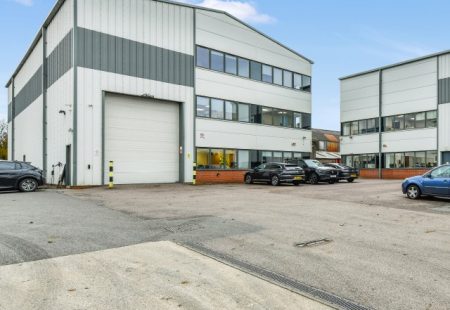Business Brexit priorities laid before Government
The Government is being reminded of the need to put business at the top of the agenda for Brexit negotiations.
Using data collated from surveys around the country, including information from East Midlands Chamber, the British Chambers of Commerce is releasing its Business Brexit Priorities agenda.
It sets out a series of wants from business in key areas of concern, offering evidence of the importance of a business perspective for each.
All 52 accredited Chambers around the country have contributed to the work using information gathered from their own Quarterly Economic Surveys.
Chris Hobson, Director of Policy at East Midlands Chamber, said:-
“This is a very detailed piece of work which clearly sets out the demands of business in seven key areas.
“As a Chamber, we are meeting with the Department for Business, Energy and Industrial Strategy within the next few weeks to discuss these matters in more detail but in the interim we would urge Government to read the document carefully and make sure that during negotiations for the UK’s exit from the EU each of the considerations is given due diligence.
“Business is the creator of wealth and jobs and the driver of regional and national economies and, as such, it should be the loudest voice during exit negotiations.”
Launched at the British Chambers of Commerce Annual Conference today, the Business Brexit Priorities agenda lists the seven key areas as trade, customs, tax, regulations, labour market, EU funding and the border between Northern Ireland and the Republic of Ireland.
Trade:
Chamber members are concerned about the potential emergence of new trade barriers which could complicate trade with the EU. Over a third of respondents (36%) expect trade with the EU to increase despite Brexit.
The Business Brexit Priorities agenda calls on Government to:
- Secure an EU trade deal on the best terms possible, including the ‘grandfathering’ of existing free trade agreements (FTAs) with third countries (with a proviso to revisit at a later stage)
- Sign new FTAs with North America – 25% of respondents expect trade with North America to increase over the next five years
- Focus on high-growth markets for new FTAs.
It also wants tariffs with the EU kept to a minimum, a focus on alleviating non-tariff barriers with the EU and the rest of the world, to ensure the UK can continue to benefit from existing FTAs post-Brexit, development of a robust consultation process to ensure business has a voice in negotiating FTAs, the programme of trade missions to be revitalised and to make sure there is no disruption to trade with the EU during the Brexit transition.
Customs:
The Government has suggested the UK will not be a full member of the EU customs union following Brexit. Leaving the customs union could require declarations at borders between the UK and the EU, which could disrupt supply chains.
Businesses have expressed concerns about the capacity for HMRC and the Border Force to deal with any changes to customs arrangements.
Chambers of Commerce stand ready to facilitate a wide consultation with businesses across the UK on customs and border management issues, and the adaptation of the EU Union Customs Code (UCC) to a UK Customs Code.
The Business Brexit Priorities agenda calls on Government to:
- Reintroduce ‘earlier’ sale which would allow importers to value goods based on the previous sale in a supply chain before import to simplify the valuation of goods at the border for tariff purposes, resulting in lower duties.
- Remove compulsory guarantees which meant that before the introduction of the UCC HMRC could waive the requirement for businesses to guarantee duty that might become liable. The introduction of compulsory guarantees has had serious cash flow implications for traders.
- Reintroduce Inward Processing (IP) Drawback, which allowed traders to import goods into the IP procedure, pay duty at import, and reclaim the duty when the goods were exported. IP Drawback allowed traders a greater degree of flexibility as it meant the duty was already paid at import.
- Allow preference documents, which would mean future trade agreements would rely not just on trader authentication schemes but also on preference documents which are well understood by businesses both large and small.
- Reintroduce VAT deferment accounts so that, as previously, when goods are imported to the UK the VAT due could be deferred and offset against a VAT return. This has significant cash flow advantages for business.
- Introduce a role for Chambers as Authorised Economic Operators so they can act as guarantors for companies which would support SMEs with faster custom declarations.
Chambers of Commerce are willing to support the Government to develop and implement a new model to ensure a seamless transition to a new UK rules of origin system.
The Government is also being urged to consider introducing Free Trade Zones to allow goods to be brought in to the UK, assembled and re-exported without customs red tape.
The Chamber network, with over 350 international trade experts, has significant expertise for advising on documentation and customs issues and stands ready to support Government in informing businesses about changes.
Tax:
There remains a high degree of uncertainty about changes to UK tax regimes post-Brexit. Businesses have expressed concerns about HMRC’s capacity to cope with major changes.
The Business Brexit Priorities agenda calls on Government to:
- Ensure a clear transition period for the complex indirect tax issues facing businesses and trading partners. There must be no premature disengagement on Brussels-linked tax issues.
- Provide greater clarity on future tax systems and arbitration processes. There needs to be clarification on whether VAT legislation will continue to mirror current core VAT principles.
Regulation:
The Government’s stated option is to avoid large-scale immediate regulatory change that could disrupt business. In the short-term, it has been said that all EU regulation will be transpose into UK domestic law and be reviewed post-Brexit.
Consultation with Chamber members has revealed that some firms find EU regulation bureaucratic and challenging and that there is too much of it, resulting in increased costs for compliance.
The Business Brexit Priorities agenda calls on Government to:
- Maintain short-term stability of the regulatory framework and avoid major changes. Businesses value a stable framework. Any proposed changes should consider the level to which businesses have had to invest to comply.
- Maintain equivalence of standards with the EU to ensure mutual recognition to enable two-way trade. Any significant divergence could make UK businesses less competitive.
- Develop a flexible UK regulatory architecture that reduces complexity for businesses. The Government should entrust an independent body to promote a flexible domestic regulatory environment and identify burdensome regulations which could be repealed or amended.
Accredited Chambers of Commerce are ready to support Government in assessing which aspects of business regulation are impractical, poorly drafted of subject to continuous change.
Labour market:
Government has said it wants to protect the status of EU nationals in the UK, reciprocally with protecting the status of UK citizens in the EU, but EU member states have blocked this.
Businesses face a skills shortage that poses a threat to future productivity and growth. Over half of businesses reported that residency guarantees for EU workers would have a positive impact. There are concerns that restrictions to migration could prevent businesses hiring the staff they need.
The Business Brexit Priorities agenda calls on Government to:
- Give certainty to businesses about the residency rights of existing EU workers and those arriving before Article 50 is triggered.
- Give clarity to businesses about hiring from EU countries during the transition period.
- Create future immigration policy that allows businesses to meet skills needs from available workers in EU countries.
EU funding:
Business welcomed guarantees from Government that funding would continue post-Brexit for existing EU-funded projects that offer “strong value for money and are in line with domestic strategic priorities”. But there are concerns about funding for local economic development, science, research and agriculture.
The Business Brexit Priorities agenda calls on Government to:
- Develop a new economic development funding system with maximum local autonomy, a strong voice for business priorities and effectiveness in supporting economic growth.
- Maintain UK access to the European Investment Bank.
Northern Ireland and the Republic of Ireland
Government wants to maintain the Common Travel Area between the UK and the Republic of Ireland. But there are doubts about whether this is achievable if immigration controls are imposed.
Members of the Northern Ireland Chamber of Commerce have expressed the importance of continued cross border activity. In some cases, firms rely on staff crossing the border each day to get to work.
The Business Brexit Priorities agenda calls on Government to:
- Ensure there is no hard border on the island of Ireland where businesses are united in their desire to maintain free trade and people flows.
- Enable whole-island collaboration and approach.
British Chambers of Commerce stands ready to convene representatives from Northern Ireland, Scotland and Wales to further discuss with Government the impact of Brexit on business communities in these areas.




